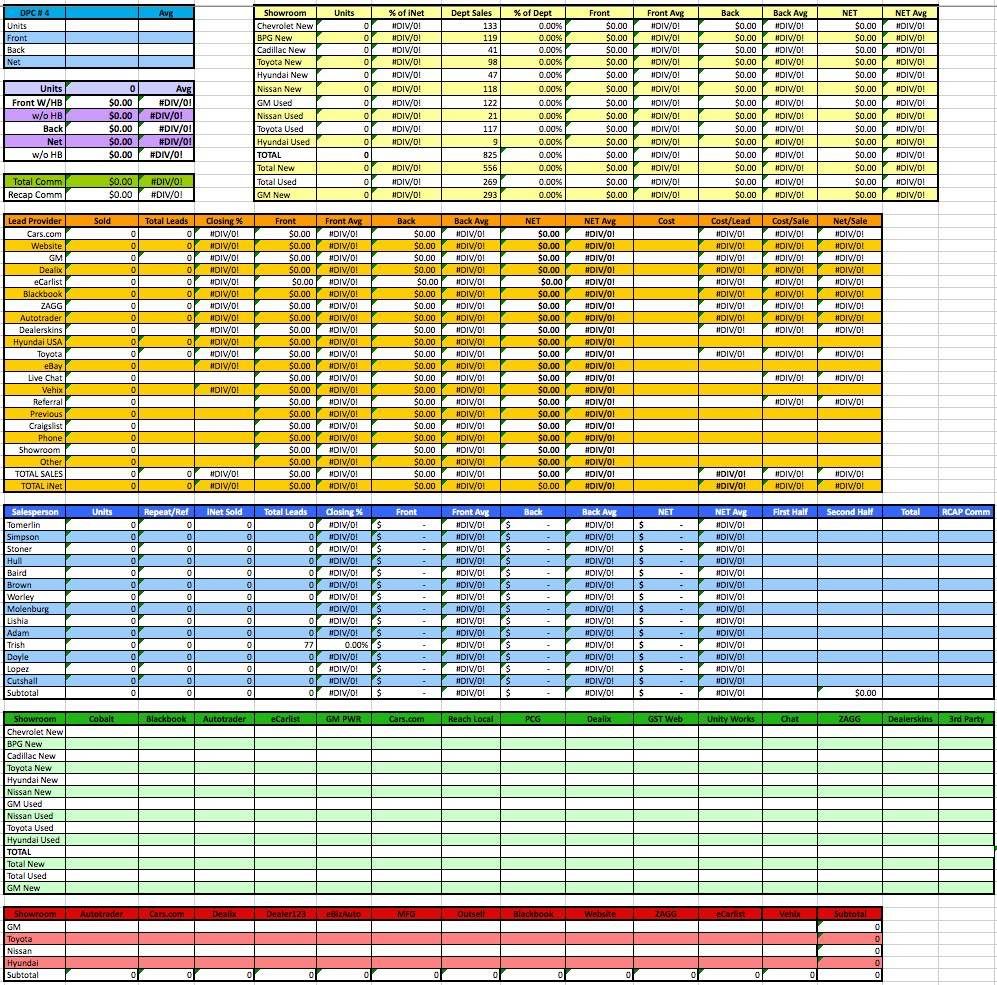Me? I use both. I am a firm believer in you can’t fix what you don’t know and when I stepped into my role approximately 2 years ago my current CRM/ILM didn’t have what I wanted. I then made a monster spreadsheet (that is pretty freaking cool if you ask me) to track and figure out what I want to know.
I now have a CRM/ILM that is much more robust and can get me much better reports but the system we have in place doesn’t take too much time and it allows me to have a better “feel” of what is going on since I am manually inputting the data.
So why use both?
1) My current provider can’t get me exactly what I want. My excel spreadsheet can.
2) It’s my old school way of having my log. That’s what I know, trust, and love.
3) Flexibility – I can change things on the fly and don’t have to worry with my technology to work with me
My process might sound like it takes quite a bit of time but it actually doesn’t when done as each vehicle is sold. Here is our process.
Salesperson sells car – they get “Recap sheet” that tells me all about the deal. They make copy, write on the copy where and when the lead came from.
In my spread sheet I then write everything out on a traditional log. This is where knowing excel gets cool. Then to my right I have all my data that I want tabulated from my traditional log. This includes tabulating where the car was sold (we have 7 dealerships), was there a trade, what was the front, back, and net of the sale, along with lead source and date lead came in.
My fields that probably need clarification are "U" - that is was it a full or split deal by the salesperson? "SR" - This is to let me log what dealership I sold the vehicle in (ie. CN = Chevy New, TN = Toyota New, etc). "Comm" is commission on recap - I then can compare that to what they are actually getting paid after unit bonuses, etc. "H/B" = Hold Back.
Then once a week I pull my lead data from my CRM/ILM and input how many leads I have received from each lead provider along with how many leads each salesperson has.
By inputting those three things on a continual basis – the time it takes is very minimal and it allows me to keep my pulse on what is going on.
I then get all my data below:
Hope that helps…








